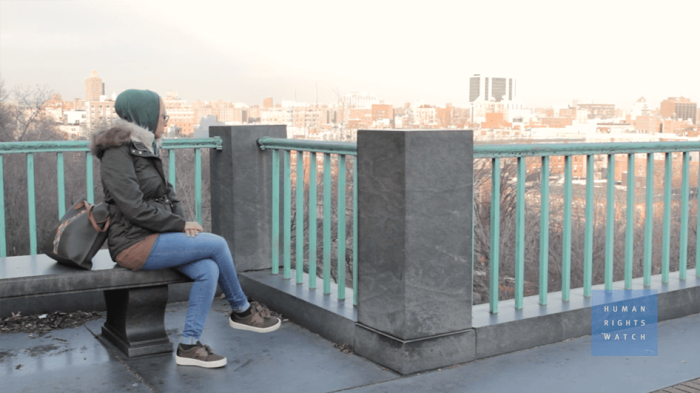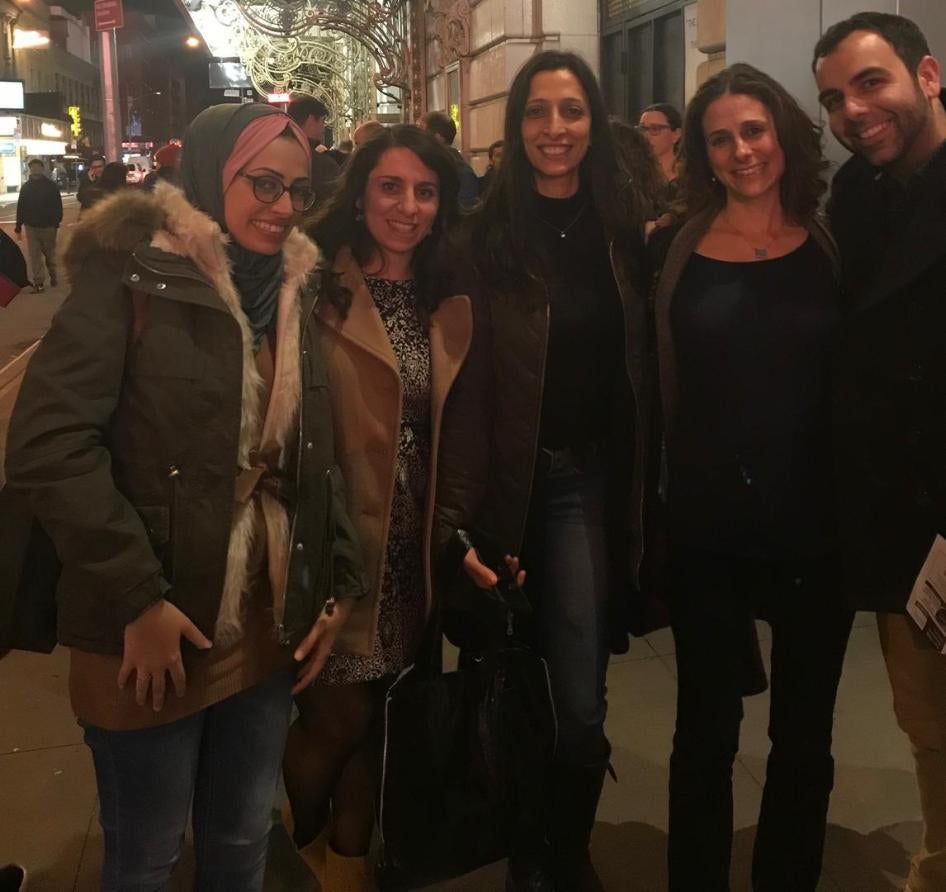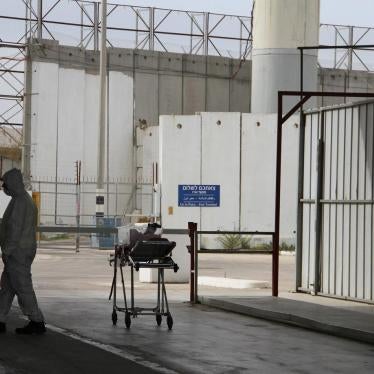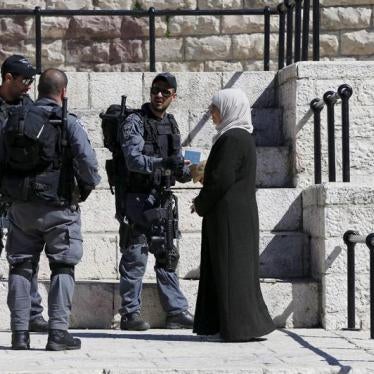I was born and grew up in Gaza. My father was a soccer coach for many years and his stories about his travels to other countries always made me want to travel too. But Israel imposed a land, air and sea blockade on Gaza in 2007, including a generalized ban on travel, and has kept Gaza mostly closed ever since. So I never made it out until now, at age 31, and now only for a little while.
Someone who introduced himself as an employee of the Palestinian Authority’s General Authority of Civil Affairs called to let me know that my permit had been approved and that I would travel in two days. I was in shock.
The prospect of leaving the 25-by-7-mile territory for the first time in my life made me so anxious I could not sleep the night before my scheduled departure. It didn’t help knowing I would have to travel without my laptop, any food, or even shampoo and toothpaste, because Israeli authorities forbid Palestinians leaving Gaza from carrying any of these items. I also knew from talking to fellow Gaza residents who had missed out on scholarship opportunities or were prevented from obtaining necessary medical care that Israel could always bar me from leaving at the last moment, without offering any reason at all.
I woke up early and headed for the shuttle departure point in the dark ahead of my 6 a.m. pick-up time. When the bus arrived, I smiled. Then I cried. I can’t describe the feeling. It was something more than happiness – maybe the feeling of peace or the taste of freedom.
We went through the Erez crossing into Israel and then through Israel and the occupied West Bank to the Allenby Bridge border crossing, where we entered Jordan. I saw vast open green pastures and tall trees. As we passed Jerusalem’s Old City, we could even see the Dome of the Rock; we weren’t allowed to stop to pray at the Al Aqsa mosque, but I managed to snap a quick photo from the bus window.
Though, as the crow flies, the distance between my home in the Gaza Strip and Jordan’s capital is less than 100 miles, the trip took us 12 hours. I arrived in Amman at 6 p.m., exhausted but happy. I got into a taxi, and opened the window. I felt like a prisoner released on bail, thrilled just to breathe unpolluted air and to see open space, so much light and no darkness. I walked Amman’s streets, filming myself in videos talking about how it feels to breathe freedom for the first time, so I could bring these feelings with me when I returned home to Gaza. I got my U.S. visa and flew to New York a week later.
This experience has all been so new to me. During my first few days away, I’d wake up in the middle of the night to charge my phone before the next power cut, then remember that, because I wasn’t in Gaza, my life was not controlled by the electricity schedule. On the flight to New York, I had to ask the flight attendant where my tray table was, and how to find the bathroom, as I worried I’d accidentally open the door of the airplane. And I may have been the only person in New York City who was overjoyed to see the snow last week; I even went out and played in it. But I am slowly adjusting. I have proudly been taking the subway every day between Manhattan to Brooklyn, where I am staying with a colleague. When my co-workers went home at the end of our week of meetings, I felt sad, not knowing if I would ever see them again. They told me that they will see me next year, and I hope it’s true.
Friends and family back home in Gaza keep asking, “How’s life outside Gaza?” I can’t answer. How to tell people who live on four to six hours of electricity daily that high-rise buildings in New York leave their lights on 24 hours a day, simply because it looks nice? That people live without generator noises, the deafening roar of Israeli military drones at night, or the constant fear of imminent conflict? Or that you can hop on a bus, train or plane on a whim, without needing a permit, and travel across the world?
I know that I have been more fortunate than many Gazans, 70 percent of whom rely on humanitarian aid, primarily from the United Nations Relief and Works Agency for Palestine Refugees (whose budget is now endangered by the U.S. administration’s decision to withhold much of its planned contribution in order to pressure the Palestinian Authority to join the Trump administration-led peace negotiations). I graduated from college and, in a place where current unemployment rates hover around 40 percent for men and 70 percent for women, my father, sister and I all have jobs. No one in my family has been harmed in Israel’s three military assaults during its armed conflicts with the Hamas-led Gaza authority since 2008, and our house hasn’t been hit. And I know I probably could not have traveled if not for my organization’s help.
Still, I try not to think about how, in a few days, I will enter the Erez checkpoint from the Israeli side and cross back into Gaza, unsure when, if ever, I will be allowed to leave again. It’s easier to accept reality in Gaza when you haven’t seen how other people live.











